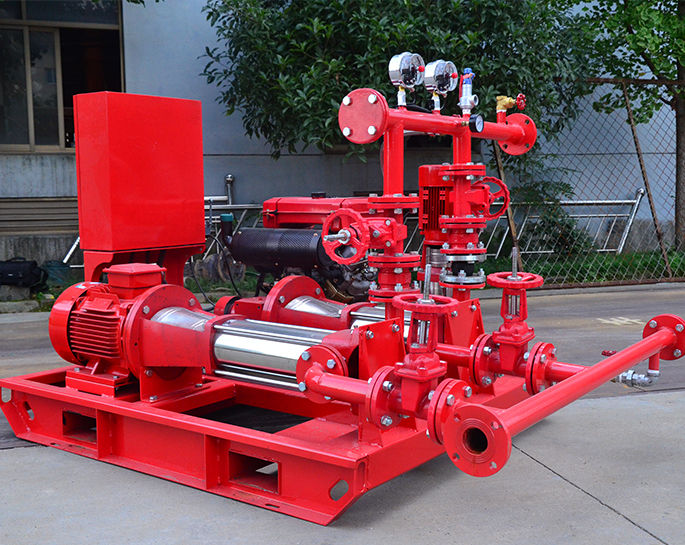common problems in the use of fire pumps
Jun 01, 2023
Share:
Fire pumps are essential components of a fire safety system. Without a properly functioning fire pump, firefighters’ ability to put out a fire is significantly decreased. Unfortunately, fire pumps are prone to a variety of problems that can have a negative effect on their performance. To help ensure the safety of buildings and properties, it’s important to understand the most common problems associated with fire pumps.
The first common problem with fire pumps is insufficient maintenance and inspections. Fire pumps are highly technical pieces of equipment and require regular checks and maintenance in order to work at peak efficiency. Without proper maintenance and inspections, problems can range from a decrease in fire suppression capabilities to dangerous malfunctions.
Another common problem associated with fire pumps is a lack of power. Fire pumps run on electricity, and it’s essential to ensure that the building’s electrical supply is adequate and reliable. Insufficient electrical power can cause pumps to not work properly, leading to decreased performance and safety.
Improperly sized fire pumps are another common problem. The size of the fire pump needs to be selected to meet the requirements of the building, based on a risk assessment. A pump that is too weak for the size of the building will not adequately protect it, while a pump that is too powerful can be dangerous and inefficient.
Finally, improper testing both before and after installation is a common problem associated with fire pumps. Testing procedures help ensure that the pumps are working correctly in order to efficiently put out any fires that might occur. Improper testing could lead to a variety of problems, ranging from decreased performance to unnecessary wear and tear. Proper testing should always be done before and after any fire pump job.
Overall, it’s important to be aware of the common problems associated with fire pumps in order to help ensure their proper performance. Regular maintenance, proper testing, adequate electrical power, and the correct size pump are all essential in ensuring a safe and efficient fire safety system.

The first common problem with fire pumps is insufficient maintenance and inspections. Fire pumps are highly technical pieces of equipment and require regular checks and maintenance in order to work at peak efficiency. Without proper maintenance and inspections, problems can range from a decrease in fire suppression capabilities to dangerous malfunctions.
Another common problem associated with fire pumps is a lack of power. Fire pumps run on electricity, and it’s essential to ensure that the building’s electrical supply is adequate and reliable. Insufficient electrical power can cause pumps to not work properly, leading to decreased performance and safety.
Improperly sized fire pumps are another common problem. The size of the fire pump needs to be selected to meet the requirements of the building, based on a risk assessment. A pump that is too weak for the size of the building will not adequately protect it, while a pump that is too powerful can be dangerous and inefficient.
Finally, improper testing both before and after installation is a common problem associated with fire pumps. Testing procedures help ensure that the pumps are working correctly in order to efficiently put out any fires that might occur. Improper testing could lead to a variety of problems, ranging from decreased performance to unnecessary wear and tear. Proper testing should always be done before and after any fire pump job.
Overall, it’s important to be aware of the common problems associated with fire pumps in order to help ensure their proper performance. Regular maintenance, proper testing, adequate electrical power, and the correct size pump are all essential in ensuring a safe and efficient fire safety system.


.png)
.png)

.png)


